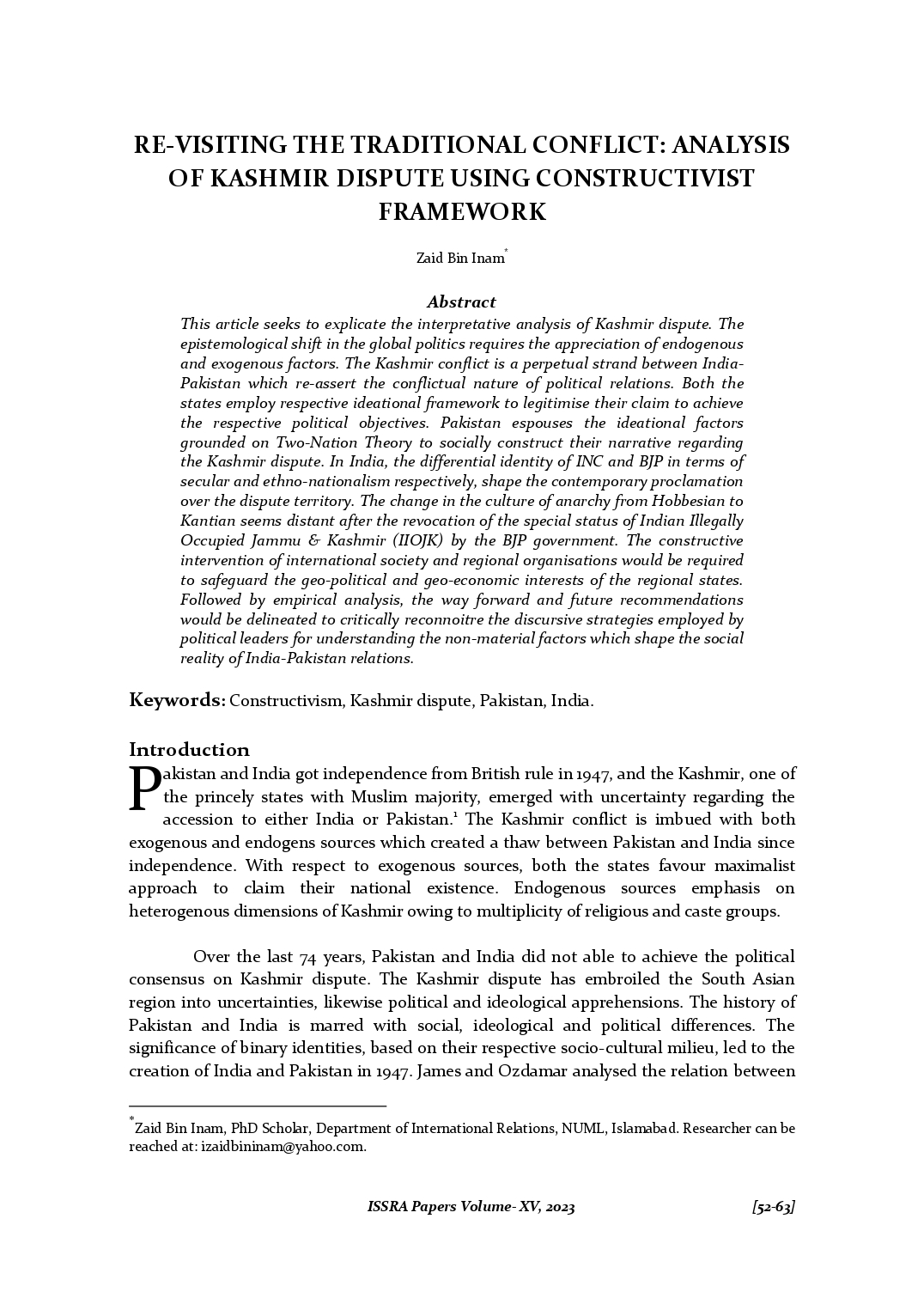RE-VISITING THE TRADITIONAL CONFLICT: ANALYSIS OF KASHMIR DISPUTE USING CONSTRUCTIVIST FRAMEWORK
Keywords:
Constructivism, Kashmir Dispute, IndiaAbstract
This article seeks to explicate the interpretative analysis of Kashmir dispute. The epistemological shift in the global politics requires the appreciation of endogenous and exogenous factors. The Kashmir conflict is a perpetual strand between India-Pakistan which re-assert the conflictual nature of political relations. Both the states employ respective ideational framework to legitimise their claim to achieve the respective political objectives. Pakistan espouses the ideational factors grounded on Two-Nation Theory to socially construct their narrative regarding the Kashmir dispute. In India, the differential identity of INC and BJP in terms of secular and ethno-nationalism respectively, shape the contemporary proclamation over the dispute territory. The change in the culture of anarchy from Hobbesian to Kantian seems distant after the revocation of the special status of Indian Illegally Occupied Jammu & Kashmir (IIOJK) by the BJP government. The constructive intervention of international society and regional organisations would be required to safeguard the geo-political and geo-economic interests of the regional states. Followed by empirical analysis, the way forward and future recommendations would be delineated to critically reconnoitre the discursive strategies employed by political leaders for understanding the non-material factors which shape the social reality of India-Pakistan relations.








